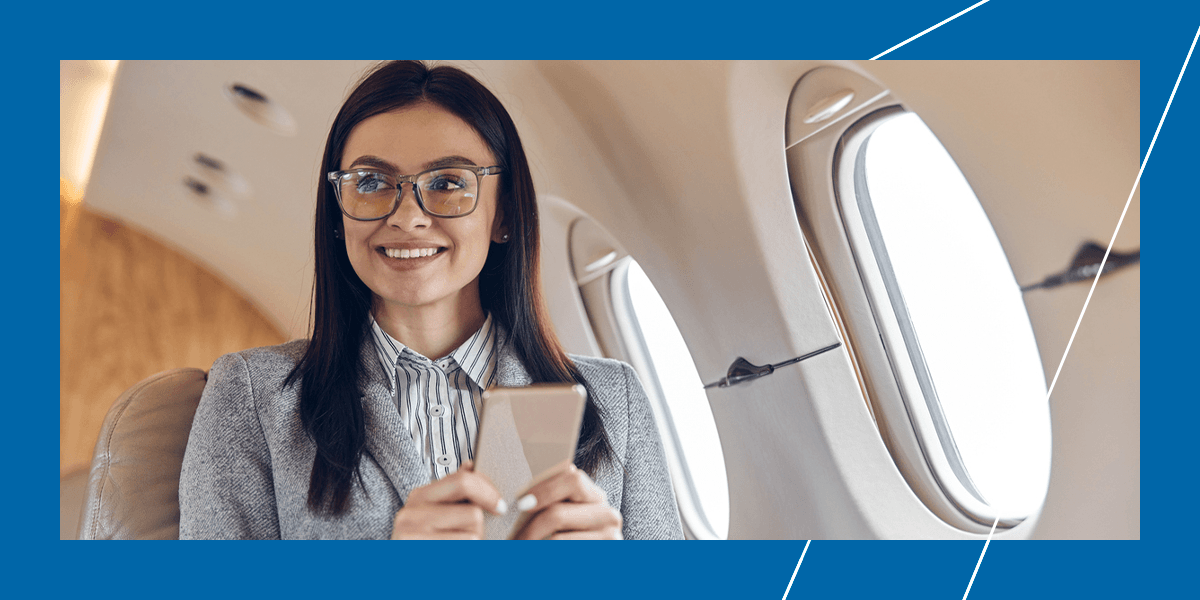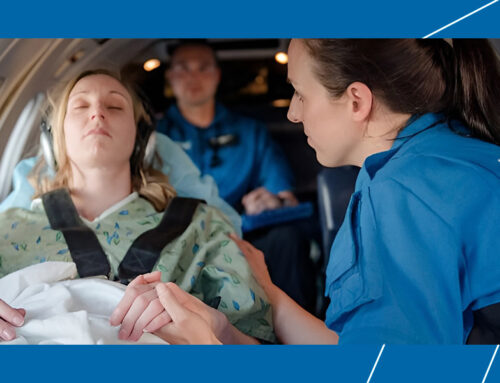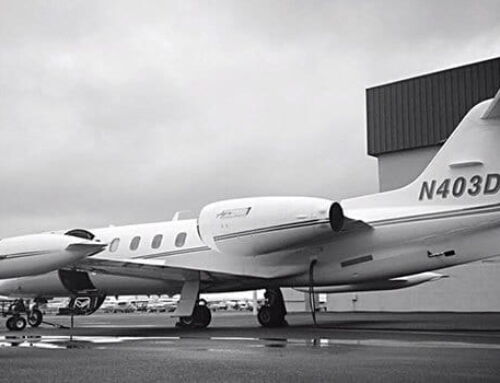Key Takeaways:
- Flying after a concussion is possible, but consulting with a doctor to assess your symptoms and risk factors is crucial for your safety.
- Air travel can worsen concussion symptoms like headaches and dizziness, so taking precautions like staying hydrated and minimizing stimuli is essential.
- Consider a medical escort for support and monitoring during your flight to ensure a safe and comfortable journey after a concussion.
Flying with a concussion may be possible, but it’s wise to weigh the risks carefully. A pre-travel consultation with your doctor can determine whether it’s safe for you to fly. Because air travel can intensify symptoms like headaches, dizziness or fatigue, having a medical escort and taking other precautions can make the experience more manageable and comfortable.
What Is a Concussion, and How Does it Affect You?
A concussion is a temporary traumatic brain injury that occurs after a hit, jolt or shake to the head. These impacts can mildly damage and stretch brain cells, disrupting their function. A medical professional diagnoses a concussion through a neurological and physical exam that involves testing your coordination, reflexes, balance and cognitive functions. Your provider may order an imaging test like an MRI or CT scan if you experience severe symptoms.
Symptoms
If you have a concussion, you may experience some or all of the following symptoms:
- Nausea
- Headaches
- Sensitivity to noise and light
- Ringing in your ears
- Dizziness
- Fatigue or drowsiness
- Blurry vision
- Confusion
- Slurred speech
- Forgetfulness
- Challenges concentrating
- Potential loss of consciousness
- Feelings of sadness, nervousness or depression
- Irritability
Recovery
Your health care provider may recommend these measures to help you heal and prevent further injury.
- Cognitive and physical rest: Rest is crucial for concussion recovery. You shouldn’t do strenuous physical and mental activities for at least a few days after developing a concussion.
- Avoiding stimuli: A concussion makes you more sensitive than usual to loud noises, screens and bright lights. Avoiding overstimulation minimizes your symptoms for faster healing.
- Nutrition and hydration: Staying hydrated and eating nutritious foods supports healing. Drinking plenty of water and eating healthy meals each day can speed your brain’s recovery process.
- Medication: Your health care provider might prescribe over-the-counter medications, such as acetaminophen, to manage headaches. Follow their instructions to the letter. Some medications can cause further complications.
Can You Fly With a Concussion?
Flying with a concussion is feasible if you take a couple of days to heal first. Make sure the following factors apply before booking a flight or heading to the airport.
- You are symptom-free or have milder symptoms: Continuing symptoms indicate that you are still in the early recovery period, but you are safe to travel if your symptoms have subsided or reduced. You can typically start easing back into your regular activities after one to two days of adequate rest.
- Your doctor has cleared you for travel: Contact your doctor before flying. A health care professional can examine you to determine if air travel is safe for you. They may recommend avoiding flights if you have a risk of brain bleeding or experience lingering dizziness, sensitivity or headaches.
Staying grounded gives your body the rest it needs to heal. Flying involves physical and mental activity, and it can also be stressful. Before booking a flight or boarding a plane, evaluate how you feel.
Should You Fly With a Concussion?
Recovering from a concussion and flying could lead to these complications.
- Discomfort and increased symptoms: A flight might make you feel significantly worse. A plane’s reduced cabin pressure lowers oxygen, which can lead to dehydration and increased dizziness or headaches. Getting through a busy airport and being around crowds also exposes you to bright lights and loud noises, which places more stress on your brain.
- Brain bleed: Decreased pressure and lower oxygen can cause a brain bleed in more severe cases. Seeing your doctor beforehand is the best way to determine if you’re safe to fly.
Your age can influence concussion recovery time and how you experience symptoms during a flight. If you are an older adult, you may be more prone to ongoing or heightened symptoms on a plane, so be sure to get the all-clear from your physician.
Ensuring Safety and Comfort When Flying After a Concussion
You can take precautions to protect yourself when flying with a concussion or after recovering from one. Use the following tips to make your flight is as safe and comfortable as possible.
- Arrive early: Getting to the airport an hour or more ahead of your flight makes the experience go more smoothly, giving your brain the mental and emotional rest it needs when healing.
- Take plenty of water and healthy snacks: Drinking water throughout your flight keeps you hydrated, and nutritious snacks give your brain valuable nutrients.
- Wear noise-canceling headphones or earplugs: Blocking out excess noise around you will help your brain rest during your flight.
- Wear an eye mask or sunglasses: Eliminating visual stimuli is another way to promote healing.
- Sleep: Try to get as much sleep as you can before, during and after your flight.
- Request a medical escort: A medical escort is a trained provider who can assist you and monitor your health during a flight. Professional companies offer this service for people who are safe to fly with a medical condition but need extra support.
Advantages of Flying With an AirCARE1 Medical Escort
A medical escort is the perfect traveling companion if your doctor clears you to fly but recommends getting help to manage your health on your trip. Here’s what you can expect from their care.
- Peace of mind: AirCARE1 medical escorts have extensive training and experience and will monitor your condition throughout your trip, intervening if necessary. You can travel confidently when a medical escort accompanies you to your destination.
- Enhanced comfort: AirCARE1’s compassionate team members provide holistic care tailored to your needs, using calming methods such as hand massages and noise-canceling headphones to promote healing. Your medical escort will also accompany you throughout the airport, giving you a calm, pleasant experience from security to arrival.
- Medication management: If you take prescribed or over-the-counter medication, your medical escort can manage it for you and remind you to take it on time.
Enjoy a More Comfortable Flight With an AirCARE1 Medical Escort
Flying after a concussion can be safe if you listen to your body and receive approval from your physician. AirCARE1 pledges to make your trip smoother and less demanding. Our medical escorts bring advanced clinical expertise and familiarity with the unique circumstances of in-flight care. We’ll keep an eye on you and respond quickly if issues arise.
We incorporate integrative techniques and gentle, personalized care that help you feel at ease during travel. Our goal is to make your flight as restful and stress-free as possible.
Request a quote to schedule a knowledgeable medical escort for your next flight.




